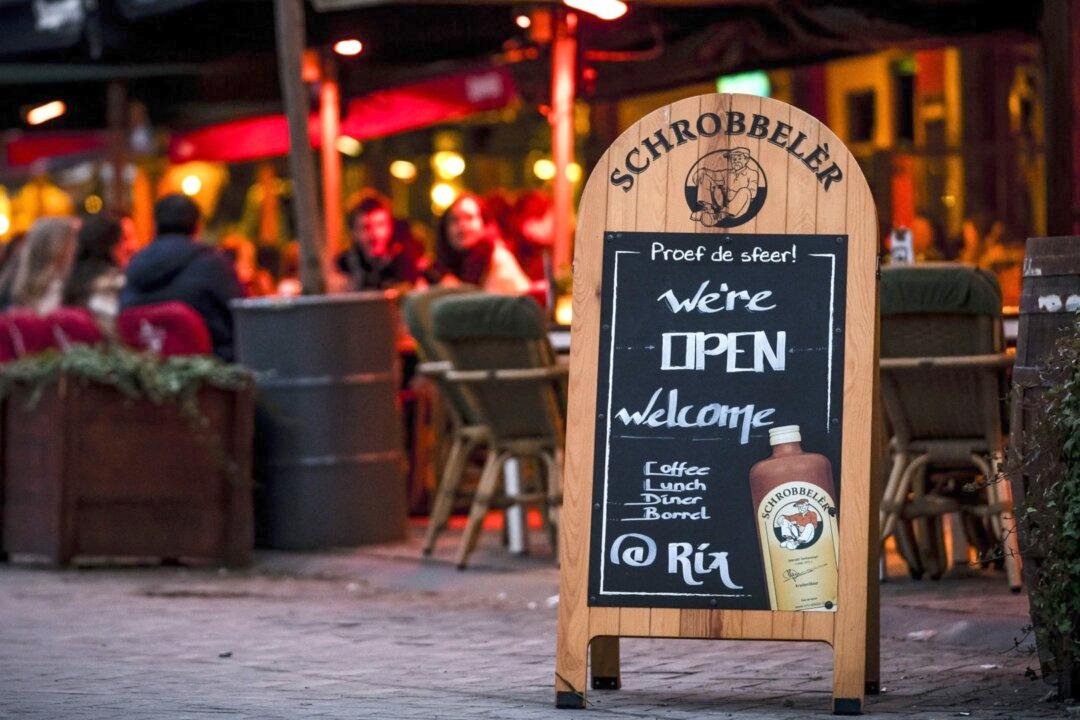The Dutch government announced it will start lifting one of the toughest COVID-19 restrictions enforced in Europe, allowing the hospitality industry to again welcome back customers.
“As of Jan. 26, most locations in our country can once again be open, under certain conditions,” the government said in guidance explaining the condition of reopening. “This means that restaurants and bars, cinemas, theatres, music venues, museums, zoos, and amusement parks can reopen.”





